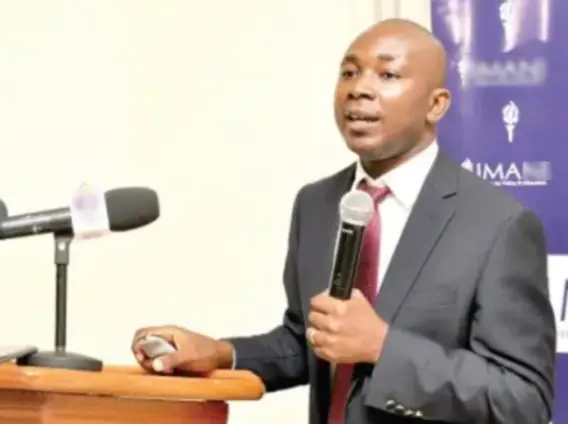The recent appreciation of the Ghanaian Cedi has sparked considerable debate, with economist Prof. Godfred Bokpin raising concerns about its potential adverse effects on local production. Speaking on Newsfile on May 17th, Prof. Bokpin argued that while a strong Cedi might seem beneficial on the surface, it could undermine the long-term economic resilience of Ghana if not managed carefully. His analysis suggests that prioritizing exchange rate stability at the expense of boosting domestic production carries significant risks. We delve into Prof. Bokpin’s analysis, exploring the implications of this approach and considering alternative strategies for sustainable economic growth, underlining the importance of locally driven economic activity in the face of a strengthening Cedi.
Prof. Bokpin cautions that a rapidly strengthening Cedi, driven by policy rather than organic economic factors, can harm Ghana’s fragile local production capacity. He argues that artificially manipulating the exchange rate to combat inflation, without addressing underlying supply-side constraints, is a risky strategy. “If the consideration is that we can drive down inflation to the end-of-year target, and we can’t get that done from the supply end because the economy’s supply capacity is severely constrained, then I will not go with the strengthening of the currency in the manner they are doing it,” he stated.
The economist believes the Cedi’s appreciation is not accidental but rather a consequence of deliberate fiscal and monetary policies. Fiscal consolidation, which involves reduced government spending, and monetary tightening are key factors contributing to the current situation. “It’s not a blip. And again, there are concerns about sustainability. There is a reason for what is happening,” Bokpin noted, highlighting the calculated nature of the currency’s ascent.
A stronger Cedi makes imports cheaper, potentially promoting an import-oriented economy at the expense of local producers. This dynamic is supported by economic data revealing that locally produced items currently experience a higher inflation rate than imported goods, making imports more attractive even after the imposition of duties. This shift can significantly disadvantage local industries, hindering their ability to compete. “When you drag down the exchange rate, it only makes imports cheaper. To the extent that we are promoting an import-oriented economy, I would say go for that. But that strategy does not create jobs,” Prof. Bokpin explained.
He further emphasized that relying solely on a strong Cedi to control inflation does not create jobs and may, in fact, lead to job losses in the local production sector. He noted, “From November 2023, inflation on locally produced items is higher than imported inflation. That means you are better off importing, paying all the duties at the port, rather than producing here.”
Prof. Bokpin suggests the central bank is using the Cedi as an inflation-fighting tool but warns against relying solely on demand-side solutions without addressing supply constraints. “Inflation is basically aggregate demand exceeding aggregate supply. If supply is constrained and you only focus on exchange rate-driven disinflation, it’s not sustainable,” he argued, stressing the need for a more balanced approach.
He also criticized the lack of transparency from the Bank of Ghana regarding its exchange rate targets, creating uncertainty in the market. “I believe the central bank has at the back of their mind a certain exchange rate level that they want to hit and stabilise at, but that hasn’t been communicated. It leaves the market guessing. And that causes uncertainty,” he observed. This lack of clarity can undermine investor confidence and hinder long-term planning.
Referencing historical trends, Prof Bokpin cautioned against the short-sighted focus on strengthening the Cedi, explaining “Anytime the cedi strengthens, the issue is always about sustainability. The ups and downs are not good for the market. It’s not good for planning.”
Instead of prioritizing a strong Cedi, Prof. Bokpin advocates for building reserves to foster predictability and stability in the market, enabling better planning for businesses and investors. “We should rather build our reserves. That allows predictability and stability. That will be more helpful,” he advised.
The economist argues that Ghana needs to shift its focus towards supply-oriented policies that boost domestic production capacity. “What you need is supply-oriented policies. Supply-oriented policies will not coexist with what we are doing right now,” he asserted, calling for a fundamental change in economic strategy.
Prof. Bokpin’s analysis underscores the potential pitfalls of prioritizing a strong Cedi over fostering a robust local production base. While acknowledging the short-term benefits of cheaper imports, he cautions that this approach could ultimately undermine Ghana’s long-term economic resilience. A sustainable path forward, according to Prof. Bokpin, requires investing in supply-side policies, building reserves, and ensuring greater transparency in the Bank of Ghana’s exchange rate strategy. The crucial point is that lasting economic stability stems not just from managing the Cedi but from empowering local industries to flourish.
Image Source: MYJOYONLINE





















